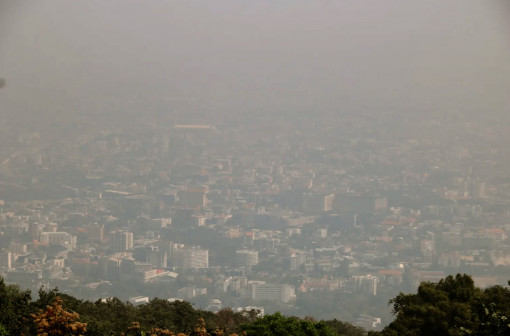Thailand, Laos and Myanmar pledge to do more to address shared haze problems

Three Southeast Asian countries — Thailand, Laos and Myanmar — have launched a “Clear Sky Strategy 2024-2030” to solve the problems of cross-border smoke and haze pollution.
The launch ceremony took place on Tuesday at the Ministry of Foreign Affairs in Bangkok, with minister Maris Sangiampongsa joining Chalermchai Sri-on, the Minister of Natural Resources and Environment.
Also taking part were Bounkham Vorachit and Khin Maung Yi, the natural resources ministers of Laos and Myanmar, respectively.
Asean member states signed the Asean Agreement on Transboundary Haze Pollution in June 2022. In April 2023, Thailand hosted an online meeting with Laos and Myanmar to discuss how to tackle the intensifying haze situation in the three countries.
The latter meeting agreed to develop a “Clear Sky Strategy” that will serve as a work plan and a guide for sustainable cooperation.
“Clear” is an acronym for Continued Commitment, Leveraging Mechanisms, Experience Sharing, Air Quality Networks, and Response. Thailand will host a conference for all those who signed up for the agreement in Bangkok late this year.
Mr Maris said the action plan was born out of the necessity for Southeast Asia to address pollution from industry, transport, agriculture and, particularly, forest fires.
“As we approach the end of this year, when the air temperature begins to drop, we can expect PM2.5 to blow up again. Therefore, this plan addresses the issue in the region,” he said.
“It will also help us to harness cooperation with partners around the world.”
Mr Chalermchai said his ministry had stressed tackling forest fires and transboundary haze by “working closely with both (neighbouring) countries to create a concrete outcome”.

